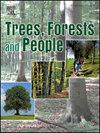Examining the impacts of urban tree structure and condition on adult depression in the United States
IF 2.7
Q1 FORESTRY
引用次数: 0
Abstract
Urbanization can stimulate economic growth through industrialization; however, urbanization can also lead to dense development and high population densities. Both factors cause stress and negatively impact the quality of life of inhabitants living in cities. In response, a growing body of research has examined the association between urban trees and human health, in general and psychological well-being, in particular. Although this literature has tended to focus on tree canopy broadly, questions remain regarding the effects of specific tree characteristics (e.g., crown dieback, tree with damage, and leaf area). This study examines the association between adult depression and tree structure and condition metrics in ten cities across the United States. Adult depression data were obtained from the Centers for Disease Control and Prevention, and individual tree structure and condition data were calculated using the Urban Forest Inventory and Analysis Program. The linear mixed-effects model showed a positive relationship between depression and tree crown-dieback percentage (p = 0.03). Understanding the interplay between individual tree characteristics and adult depression can inform urban planning, design, and maintenance practices.
研究美国城市树木结构和状况对成人抑郁症的影响
城市化可以通过工业化刺激经济增长;然而,城市化也会导致密集发展和高人口密度。这两个因素都会对城市居民的生活质量造成压力和负面影响。为此,越来越多的研究探讨了城市树木与人类健康,特别是心理健康之间的关系。尽管这些文献倾向于从广义上关注树冠,但对于特定树木特征(如树冠枯死、树木受损和叶面积)的影响仍存在疑问。本研究考察了美国十个城市中成年人抑郁与树木结构和状况指标之间的关联。成人抑郁数据来自美国疾病控制和预防中心,单棵树木的结构和状况数据则通过城市森林资源调查和分析程序计算得出。线性混合效应模型显示,抑郁症与树冠倒伏百分比之间存在正相关关系(p = 0.03)。了解树木个体特征与成株郁闭度之间的相互作用,可以为城市规划、设计和维护实践提供参考。
本文章由计算机程序翻译,如有差异,请以英文原文为准。
求助全文
约1分钟内获得全文
求助全文
来源期刊

Trees, Forests and People
Economics, Econometrics and Finance-Economics, Econometrics and Finance (miscellaneous)
CiteScore
4.30
自引率
7.40%
发文量
172
审稿时长
56 days
 求助内容:
求助内容: 应助结果提醒方式:
应助结果提醒方式:


